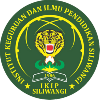THE IMPLEMENTATION OF LEARNING ENGLISH VOCABULARY THROUGH ASYNCHRONOUS CLASS
DOI:
https://doi.org/10.22460/project.v4i6.p1050-1056Abstract
Online Learning certainly has challenges for students and teachers in carrying out English learning activities. This activity is carried out through asynchronous classes due to the limitations of students' devices on each cellphone. When conducting asynchronous classes for the students studying English, social media can make students motivated to learn because of the openness in learning. This study aims to motivate the students to be more enthusiastic in learning English in appropriating Youtube and WhatsApp in the implementation of which does not promote social media. Employing the descriptive qualitative method, this activity can determine the percentage of their ability and experience in studying vocabulary in English as a Foreign method during a pandemic. It is found that this activity received a positive response but there were shortcomings due to having objections in downloading learning files on social media and experiencing signal difficulties. Moreover, they get waivers where the students can ask their problems from what they did to the teacher freely. It seems that the students who learn through social media can find new knowledge which should be extra and openly guided by the teacher during online learning.
Â
Keywords:Â Asynchronous, Vocabulary, English, Youtube, WhatsApp
References
Ahmad, J. (2012). English Language Teaching (ELT) and Integration of Media Technology. Procedia - Social and Behavioral Sciences, 47(Balaaco 1996), 924–929. https://doi.org/10.1016/j.sbspro.2012.06.758
Ahmad, J., Kyriacou, C., Sepulveda-Escobar, P., Morrison, A., Sara, K., Sarwar, M., Alam, M., Hussain, S., Shah, A. A., Jabeen, M., KlÃmová, B., Saeed Al-Sobhi, B. M., Preece, A. S., Rego, B., Com, B., Ed, B., & Sutton, D. (2009). English Language Teaching (ELT) and Integration of Media Technology. Eastern Mediterranean Health Journal, 4(1), 587–607. https://doi.org/10.5040/9780755696499.ch-004
Arifani, Y. (2019). The application of small WhatsApp groups and the individual flipped instruction model to boost EFL learners’ mastery of collocation. CALL-EJ, CALL-EJ, 2((1)), 52–73.
Awada, G. (2016). Effect of whatsapp on critique writing proficiency and perceptions toward learning. Cogent Education, 3(1). https://doi.org/10.1080/2331186X.2016.1264173
Bensalem, E. (2018). The Impact of WhatsApp on EFL students’ Vocabulary Learning. Arab World English Journal, 9(1), 23–38. https://doi.org/10.24093/awej/vol9no1.2
KlÃmová, B. (2018). Mobile phones and/or smartphones and their apps for teaching English as a foreign language. Education and Information Technologies, 23(3), 1091–1099. https://doi.org/10.1007/s10639-017-9655-5
Malm, B. (2009). Towards a new professionalism: Enhancing personal and professional development in teacher education. Journal of Education for Teaching, 35(1), 77–91. https://doi.org/10.1080/02607470802587160
Meinawati, E., Rahmah, N. A., & Harmoko, D. D. (2020). Increasing English Speaking Skills. 16(1), 1–13.
Rego, B., Com, B., & Ed, B. (2009). A Teacher ’ s Guide to Using Facebook. 1–22.
Sara, K. (2009). Teaching english at Damascus University medical school. Eastern Mediterranean Health Journal, 15(3), 653–664. https://doi.org/10.26719/2009.15.3.653
Sarwar, M., Alam, M., Hussain, S., Shah, A. A., & Jabeen, M. (2014). Assessing English speaking skills of prospective teachers at entry and graduation level in teacher education program. Language Testing in Asia, 4(1), 1–9. https://doi.org/10.1186/2229-0443-4-5
Sepulveda-Escobar, P., & Morrison, A. (2020). Online teaching placement during the COVID-19 pandemic in Chile: challenges and opportunities. European Journal of Teacher Education, 43(4), 587–607. https://doi.org/10.1080/02619768.2020.1820981
Sutton, D. (2020). Becoming art. Deleuze Reframed. https://doi.org/10.5040/9780755696499.ch-004
Wijayanti, A., & Gunawan, Y. B. (2019). Students’ Perceptions towards The Utilization Of “Whatsapp†for Vocabulary Teaching and Learning. ADJES (Ahmad Dahlan Journal of English Studies), 5(2), 78–91. https://doi.org/10.26555/adjes.v5i2.10462











